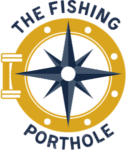


Many conversations and decisions are happening around how marine space should be used, especially with competing priorities such as Marine Protected Areas (MPAs) and offshore wind. These decisions often rely only on environmental and economic data, but the UK Government are now exploring how to consider data related to why fishermen value certain fishing grounds for reasons other than for money – in other words, the social and cultural values of fisheries. These values might include things like family ties to fishing grounds, places of safety during storms, and love of coastal landscapes.
‘Mapping what Matters’ is the next step in how to recognise and take account of the socio-cultural values tied to fishing grounds in England. The project has been designed with the close involvement of a working group of fishermen.
* Who are “we”? This is a Defra project collaborating with different organisations. This includes the Defra social science team, Countryside and Community Research Institute, a team of consultants from ABPmer, some individuals from the fishing industry providing support & guidance, and Fishing into the Future, who are helping with outreach and project engagement.
By telling us the reasons for where you fish and why, these reasons are considered in planning decisions on marine spaces in England – decisions ranging from offshore wind development to MPA selection to Fisheries Management Plans (FMPs).
You will also have the option of accessing a high-level version of the map for your area, combining the contributions of multiple fishermen, to submit as evidence to consultations, such as local planning decisions.
The project is currently in a pilot phase, so that we can road-test our data collection process. We are carrying out the pilots in Brixham and Yorkshire during winter 2025/26. All fishermen – whether active or not – in these two areas are encouraged to participate.
You can take part by coming to one of the drop-in sessions we will be holding close to quaysides. We’ll soon be providing more information about the times and locations of the drop-ins, with these to be planned around fishing activity.
At the drop-in, you will be asked to draw on charts any fishing areas that are important to you for non-economic reasons and to comment on why each area matters to you. The process should only take about 20 minutes in all.
If you can’t attend one of the drop-ins or would prefer not to participate in person, you can do so by post or over the phone instead.

The information you give us will be converted into digital form, made anonymous, and combined with that of other contributors so that it cannot be attributed to you.
The final result will be a map of areas that fishermen consider important for reasons that go beyond economic ones – so even if an area does not significantly contribute to the economy, but sustains livelihoods in a local community or is important for other reasons, it can be considered. The map will be an important resource for decision makers to better understand the impacts on fishing communities of marine spatial planning and prioritisation, offshore wind development, MPA selection and Fisheries Management Plans (FMPs).
We conducted a design phase of the project in early 2025, in which a working group of active fishermen, an advisory steering group, and the project team worked alongside Defra to co-design a framework for the data collection.
As per the working group’s recommendations, we are first conducting a ‘pre-pilot’ with a small group of fishermen, to test the method on a smaller scale and enable it to be fine-tuned before running the full pilots in Brixham and Whitby.
Once the method has been fully tested and agreed by the working group and steering group through the pilots, the plan is to roll the project out more widely to anyone fishing commercially in English waters through more local drop-in sessions and postal contributions.
